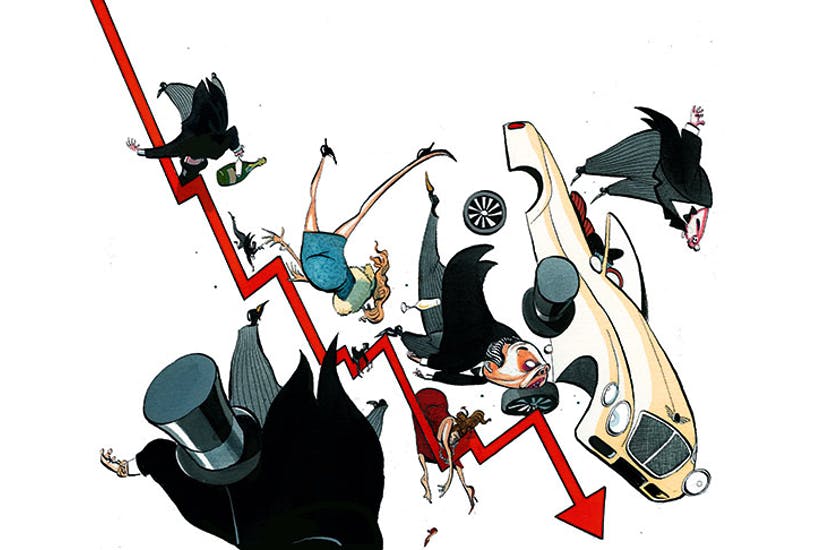The uncertainty will be lifted. Businesses will know where they stand. Our politics can return to something approaching normality, and the government can get on with tackling all the other issues the country faces. Whatever the precise pluses and minuses of Boris Johnson’s Withdrawal Agreement for getting out of the EU, you might think that finally resolving the issue would be helpful for the economy.
Except apparently not. Just when you might think we had seen enough forecasts of this deal or that to last several lifetimes along comes the National Institute of Economic and Social Research with the alarming news that not only will leaving the EU make us poorer, this particular way of leaving will make us even poorer than Theresa May’s deal.
By how much? Apparently by the end of the 2020s, the UK will be £70 billion worse off. The economy will be 3 to 4 per cent smaller than if we had remained in the EU. And it will be slightly poorer than the 3 per cent worse off we were going to be under May’s agreement. There will be no ‘deal dividend’. Just relentless failure. It is hardly the kind of endorsement the Prime Minister would have hoped for heading into an election in which his party’s main argument will be that it can get Brexit dealt with and move on.
The trouble is, Brexit forecasting is running into what – in jargon economists should understand better than anyone – are increasingly diminishing returns. For starters it turns out, the Institute does not even have an especially good record of forecasting the consequences of leaving the EU. For example, in a review of its own performance included in the latest update, it admits that in August 2016, right after the referendum, it predicted growth of 1 per cent in 2017 which was ‘0.9 percentage points less than the outturn’. In other words, a massive miss. In fairness, that was no worse than most, and better than the Treasury or the IMF managed. But it still illustrates why forecasting Brexit’s impact on growth is a pointless activity.
There are two big problems. First the timescales are simply way too long. So much unknown unknown stuff will happen over ten years that the forecast has no chance of being right. It is just a random number. Secondly, it fails to capture any of the intangible benefits of leaving. Will we have lighter, more effective regulations outside of the EU? Will lower immigration force companies to invest more in existing staff? No one has any real idea. But those are the kind of factors that will impact growth. And the forecasts don’t capture them.
In truth, economics should have lots of useful things to contribute to the debate around our departure from the EU. Should we retaliate against tariffs or adopt unilateral free trade? Should we subsidise industries hit by our departure or let them sink? Should we maintain regulatory alignment with Europe or strike our own path? There are costs and benefits to all of those potential policies and they deserve analysis. But the forecasts are so spurious, so inaccurate, and so wide of the mark they are worse than useless. They stop any economic analysis being heard. For its own sake the NIESR, along with the rest of the profession, should stop making them – because at this point that is by far the most useful contribution they could make.






Comments